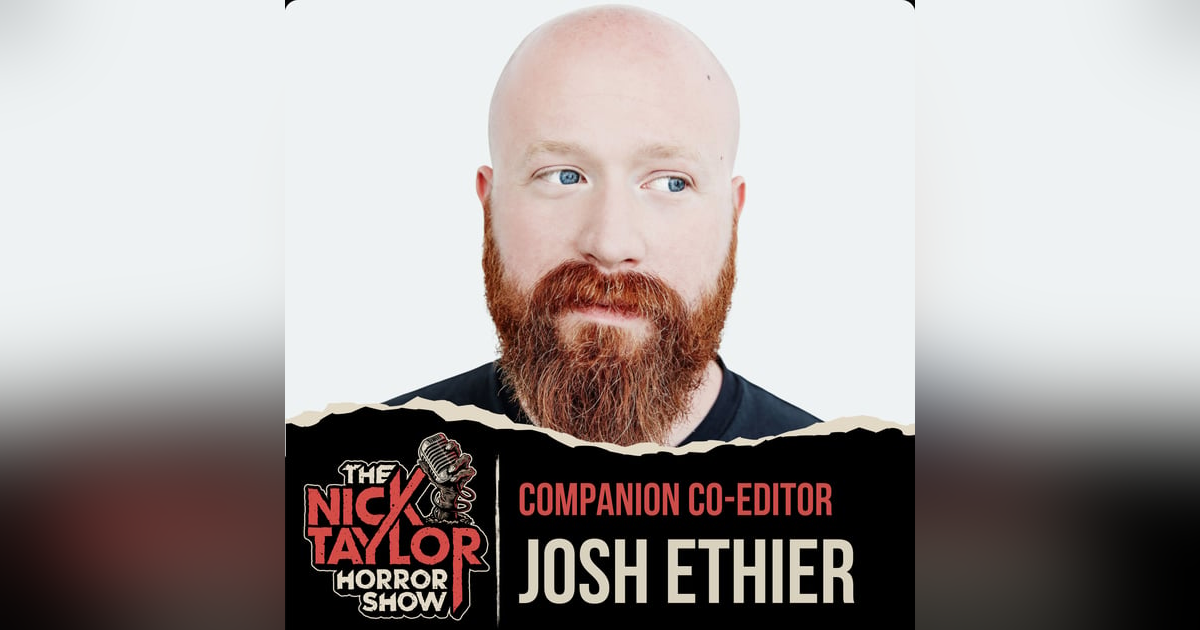COMPANION Co-editor, Josh Ethier

Josh Ethier is a film editor who has become a household name in horror. Josh is the editing force behind such films as: Contracted, Some Kind of Hate, We are Still Here, Mayhem, Leatherface, Bliss, VFW, Orphan First Kill, Christmas Bloody Christmas, The Seventh Day, Gretel and Hansel, Don’t Breathe and most recently Companion which he edited alongside Brett Bachman.
In this episode, Josh gets into his career history, editing process, collaborations with filmmakers like Joe Begos and Osgood Perkins and the story behind the recently released Companion, which is one of my favorite horror movies in a long time. This is a really insightful conversation that I really enjoyed and think you will as well. Please welcome, Josh Ethier!
Here are some key takeaways from this conversation with Josh
Look for the Note Behind the Note
Audience feedback can be a double-edged sword—sometimes useful, sometimes misleading. Josh learned early on from Stuart Gordon (Re-Animator) that feedback isn’t about taking every note literally but understanding the note behind the note which requires deeper analysis.
For instance, on Companion, early test screenings showed that one character was getting lower audience scores. Instead of softening the character, they leaned into the audience’s dislike and committed to it—embracing the audience’s reaction rather than trying to cater to feedback. As a result, the character actually scored higher in later tests.
Editing is a “Four-Month Conversation” Between Director and Editor
The relationship between an editor and a director is one of the most intimate creative partnerships in filmmaking. Josh emphasizes that the strongest director-editor teams are built on genuine relationships, which is why socializing and getting to know each other outside of the work is just as important as the technical process.
The best collaborations happen when an editor and director truly understand each other’s creative DNA—the movies that inspire them, their sense of humor, their artistic instincts, and how they think about storytelling. The editing room isn’t just where cuts are made; it’s where creative risks are taken, where directors feel safe enough to experiment, and where an editor helps guide them toward their best possible work.
The more an editor and director understand each other, the better they can anticipate each other’s needs, develop a shorthand, challenge each other in the right ways, and ultimately make the movie stronger.
Immerse Yourself in Quality
Josh believes that editors—and all filmmakers—should obsessively watch and absorb great films. But instead of overanalyzing or attempting to reverse-engineer their greatness, the key is exposure. Some films are great because they have an innate rhythm, a unique DNA that can’t simply be replicated. Rather than trying to deconstruct and apply a formula, internalize their essence. Understand what great filmmaking feels like, so when it comes time to shape your own work, you instinctively recognize when something is working—and when it’s not. This is also a common piece of creative advice given by Rick Rubin, and I highly recommend his book The Creative Act.
SHOW NOTES
Movies Discussed
- Companion (2024)
- Almost Human (2013)
- Contracted (2013)
- Gretel & Hansel (2020)
- We Are Still Here (2015)
- First Blood (1982)
- Jaws (1975)
- Seven (1995)
- Looper (2012)
Books & Resources
- In the Blink of an Eye – Walter Murch
- The Conversations: Walter Murch and the Art of Editing Film – Michael Ondaatje
- Easy Riders, Raging Bulls – Peter Biskind
- The Cutting Edge: The Magic of Movie Editing (Documentary)
- Every Frame a Painting (YouTube Series by Tony Zhou)
- The Rough Cut (Podcast by Matt Feury)
- Steve Hullfish’s Art of the Cut (Book & Podcast)
- Fangoria (Josh’s article on editing Companion)
- Letterboxd (where Josh actively logs & reviews films)
Follow Josh Ethier at:
- IMBd: https://www.imdb.com/name/nm3991275/
- Instagram: https://www.instagram.com/joshethier/
- X (Twitter): https://x.com/josh_ethier
- LinkedIn: https://www.linkedin.com/in/joshethier/







